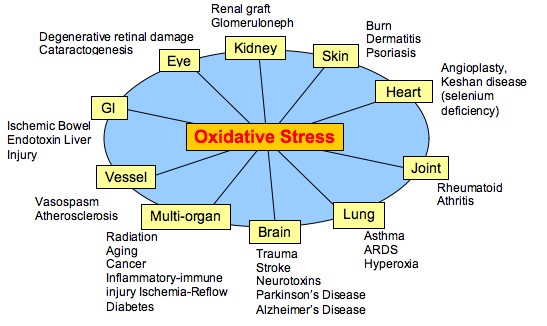Health: What is Oxidative Stress? Part 1
Oxidative stress is caused by an imbalance between the production of reactive oxygen and a biological system’s ability to readily detoxify the reactive intermediates or easily repair the resulting damage.
All forms of life maintain a reducing environment within their cells. This reducing environment is preserved by enzymes that maintain the reduced state through a constant input of metabolic energy. Disturbances in this normal redox state can cause toxic effects through the production of peroxides and free radicals that damage all components of the cell, including proteins, lipids, and DNA.
In humans, oxidative stress is involved in many diseases, such as atherosclerosis, Parkinson’s disease, heart failure, myocardial infarction, Alzheimer’s disease, fragile X syndrome and chronic fatigue syndrome, but short-term oxidative stress may also be important in prevention of aging by induction of a process named mitohormesis. Reactive oxygen species can be beneficial, as they are used by the immune system as a way to attack and kill pathogens. Reactive oxygen species are also used in cell signaling. This is dubbed redox signaling.
Next week we will discuss the role of antioxidants in combatting oxidative stress.


